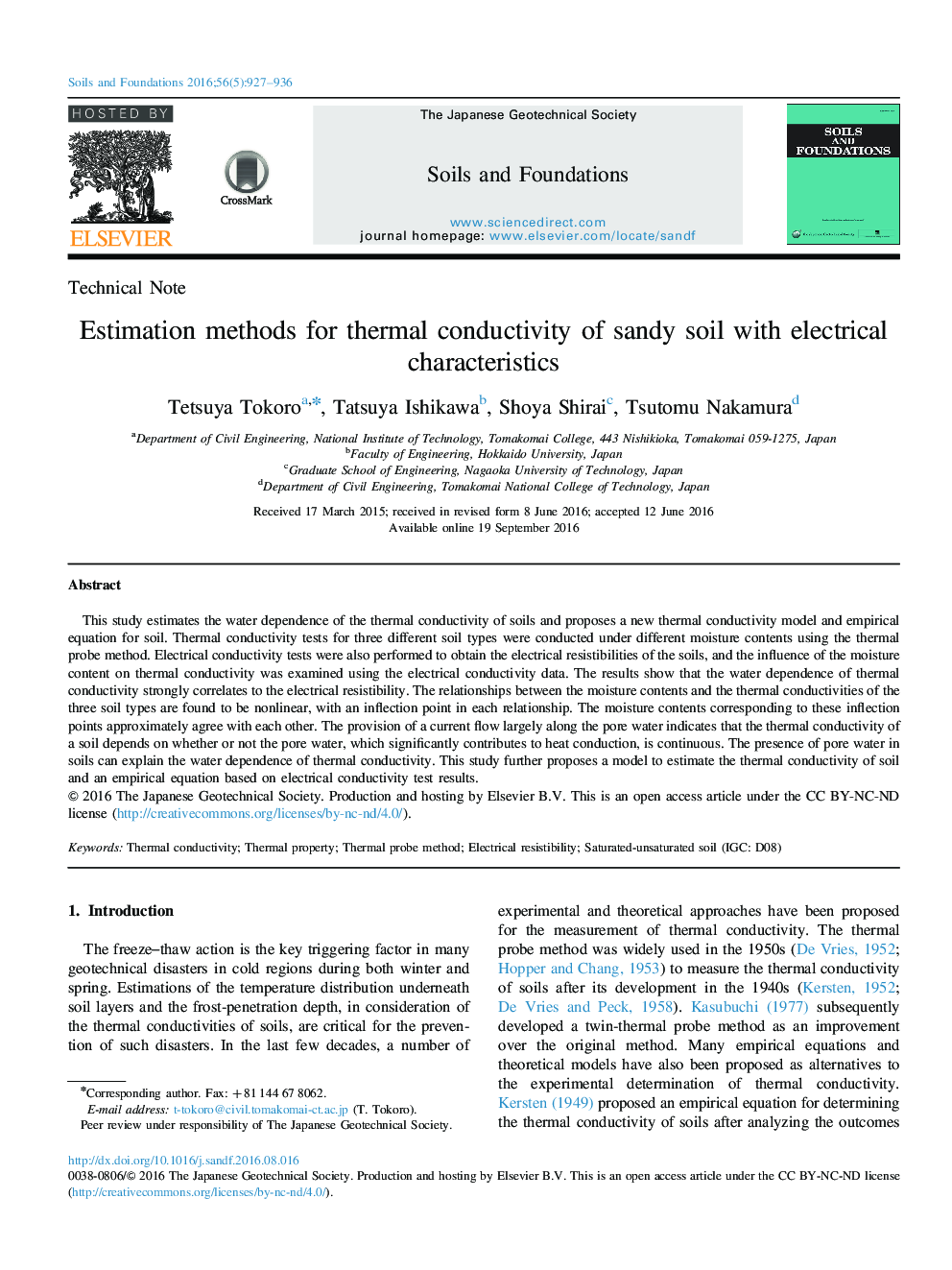| Article ID | Journal | Published Year | Pages | File Type |
|---|---|---|---|---|
| 4927678 | Soils and Foundations | 2016 | 10 Pages |
This study estimates the water dependence of the thermal conductivity of soils and proposes a new thermal conductivity model and empirical equation for soil. Thermal conductivity tests for three different soil types were conducted under different moisture contents using the thermal probe method. Electrical conductivity tests were also performed to obtain the electrical resistibilities of the soils, and the influence of the moisture content on thermal conductivity was examined using the electrical conductivity data. The results show that the water dependence of thermal conductivity strongly correlates to the electrical resistibility. The relationships between the moisture contents and the thermal conductivities of the three soil types are found to be nonlinear, with an inflection point in each relationship. The moisture contents corresponding to these inflection points approximately agree with each other. The provision of a current flow largely along the pore water indicates that the thermal conductivity of a soil depends on whether or not the pore water, which significantly contributes to heat conduction, is continuous. The presence of pore water in soils can explain the water dependence of thermal conductivity. This study further proposes a model to estimate the thermal conductivity of soil and an empirical equation based on electrical conductivity test results.
